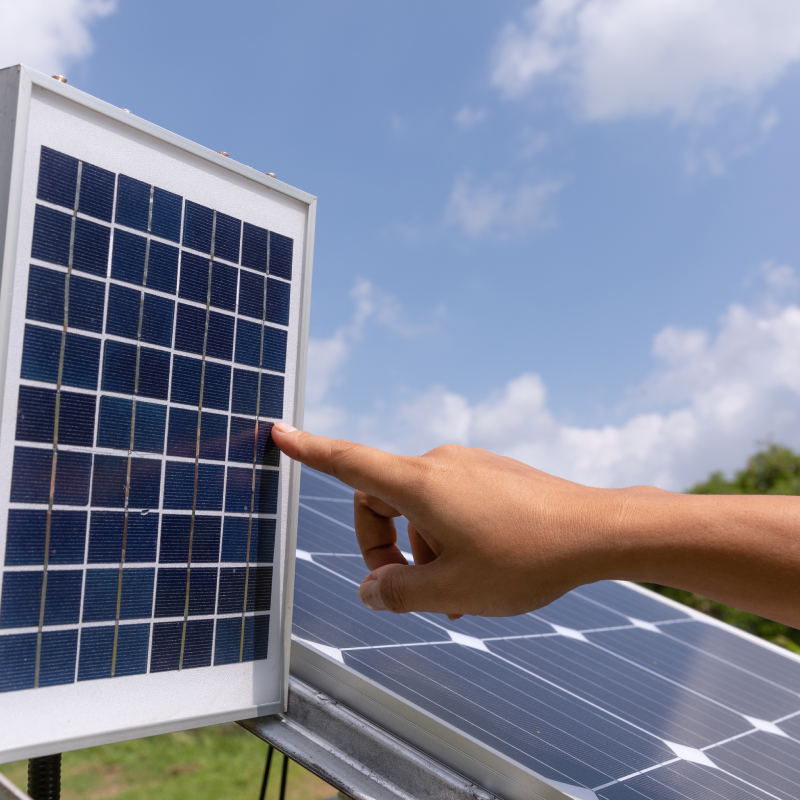Solar energy systems have become an increasingly preferred solution for electricity generation. One of the basic components of these systems is solar inverters. Inverters convert the direct current (DC) produced by solar panels into alternating current (AC) used in homes and workplaces, ensuring efficient use of energy.
Solar inverters are divided into two main categories: On-Grid (Grid Connected) and Off-Grid (Independent from the Grid). In this article, we will discuss the differences between on-grid and off-grid inverters, their advantages, and which system should be preferred under which conditions.
1. On-Grid (Grid Connected) Inverters
On-grid inverters are inverters that work in connection with the grid and can send excess energy produced back to the electricity distribution grid. These systems are generally used in areas with access to city electricity.
Features:
- Synchronizes the energy produced by solar panels to the grid.
- The excess energy produced can be sold to the electricity distribution grid.
- Thanks to the grid connection, it does not require batteries.
- It usually does not work during power outages because it cannot send energy to the grid for security reasons.
Advantages:
- Excess energy produced can be sold to the grid, saving on electricity bills.
- Installation costs are lower since no battery usage is required.
- It is highly efficient and requires low maintenance.
- You have a continuous energy source thanks to the grid connection.
Disadvantages:
- Since it requires a grid connection, it cannot be used in rural areas or places without access to electricity.
- In power outages, the inverter is disabled for security reasons and the system does not work.
- Approval from the electricity distribution company may be required for connection to the grid.
2. Off-Grid Inverters
Off-grid inverters are systems that operate independently of the grid and are usually integrated with batteries to store energy. These inverters are ideal for users in rural areas, areas where grid electricity does not reach, or who want a completely independent energy system.
Features:
- It stores the energy from solar panels directly in batteries and provides it for use when needed.
- It is not connected to the grid, so it provides a completely independent energy source.
- It is not affected by grid outages, it offers a continuous power source.
Advantages:
- It can be used anywhere since it does not require a grid connection.
- It is not affected by power outages, it offers a continuous energy source.
- It provides the user with complete energy independence.
Disadvantages:
- Since it requires battery use, the installation cost is higher.
- Batteries have a certain life and need to be replaced periodically.
- Since there is no grid support, there may be an outage when energy production is insufficient.
3. Comparison of On-Grid and Off-Grid Inverters
4. Which Inverter Should You Prefer?
Who is On-Grid Inverter Suitable For?
- For homes and businesses connected to the electricity grid.
- For those who want to save on high electricity bills.
- For those who want to earn additional income by selling energy to the grid.
- For those who want to set up a system with lower installation costs.
Who is Off-Grid Inverter Suitable For?
- For those living in rural areas without access to the electricity grid.
- For users who want complete energy independence.
- For those who do not want to be affected by power outages.
- For those who want to store energy and can invest in battery systems.
On-grid and off-grid inverters offer solutions for different needs. If you want to have a grid-connected energy system and sell your excess electricity, you can choose an on-grid inverter. However, if you do not have access to the grid or want a completely independent energy source, an off-grid inverter will be more suitable for you.
It is important to consider your energy needs, budget and long-term goals when making your choice. Both systems have their own advantages and disadvantages. Choosing the most suitable inverter will ensure that your system is efficient and has a long life.


